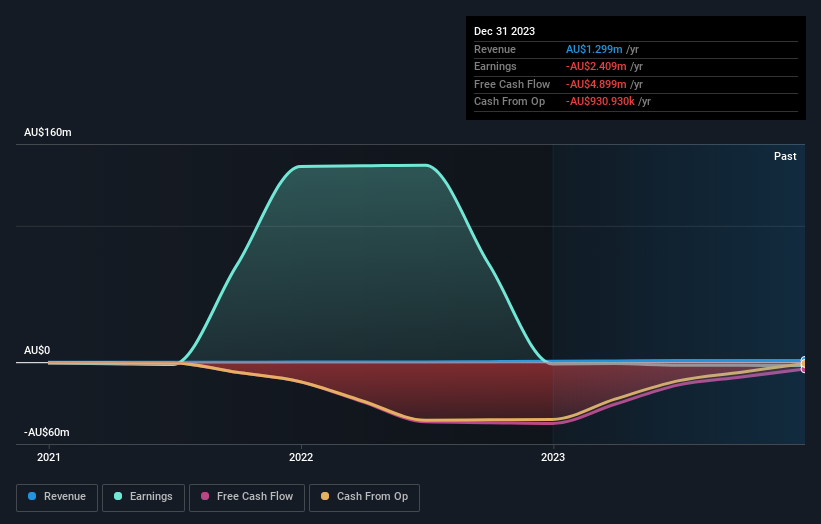With a 71% stake, Red Hill Minerals Limited (ASX:RHI) insiders have a lot riding on the company
Key Insights
Insiders appear to have a vested interest in Red Hill Minerals' growth, as seen by their sizeable ownership
58% of the business is held by the top 3 shareholders
Using data from company's past performance alongside ownership research, one can better assess the future performance of a company
A look at the shareholders of Red Hill Minerals Limited (ASX:RHI) can tell us which group is most powerful. The group holding the most number of shares in the company, around 71% to be precise, is individual insiders. Put another way, the group faces the maximum upside potential (or downside risk).
So, insiders of Red Hill Minerals have a lot at stake and every decision they make on the company’s future is important to them from a financial point of view.
In the chart below, we zoom in on the different ownership groups of Red Hill Minerals.
Check out our latest analysis for Red Hill Minerals
What Does The Lack Of Institutional Ownership Tell Us About Red Hill Minerals?
Small companies that are not very actively traded often lack institutional investors, but it's less common to see large companies without them.
There could be various reasons why no institutions own shares in a company. Typically, small, newly listed companies don't attract much attention from fund managers, because it would not be possible for large fund managers to build a meaningful position in the company. It is also possible that fund managers don't own the stock because they aren't convinced it will perform well. Institutional investors may not find the historic growth of the business impressive, or there might be other factors at play. You can see the past revenue performance of Red Hill Minerals, for yourself, below.
Hedge funds don't have many shares in Red Hill Minerals. Looking at our data, we can see that the largest shareholder is Tony Poli with 23% of shares outstanding. With 20% and 14% of the shares outstanding respectively, Joshua Pitt and Neil Tomkinson are the second and third largest shareholders. Joshua Pitt, who is the second-largest shareholder, also happens to hold the title of Top Key Executive.
To make our study more interesting, we found that the top 3 shareholders have a majority ownership in the company, meaning that they are powerful enough to influence the decisions of the company.
While studying institutional ownership for a company can add value to your research, it is also a good practice to research analyst recommendations to get a deeper understand of a stock's expected performance. We're not picking up on any analyst coverage of the stock at the moment, so the company is unlikely to be widely held.
Insider Ownership Of Red Hill Minerals
The definition of company insiders can be subjective and does vary between jurisdictions. Our data reflects individual insiders, capturing board members at the very least. The company management answer to the board and the latter should represent the interests of shareholders. Notably, sometimes top-level managers are on the board themselves.
Insider ownership is positive when it signals leadership are thinking like the true owners of the company. However, high insider ownership can also give immense power to a small group within the company. This can be negative in some circumstances.
Our most recent data indicates that insiders own the majority of Red Hill Minerals Limited. This means they can collectively make decisions for the company. That means they own AU$302m worth of shares in the AU$425m company. That's quite meaningful. It is good to see this level of investment. You can check here to see if those insiders have been buying recently.
General Public Ownership
With a 13% ownership, the general public, mostly comprising of individual investors, have some degree of sway over Red Hill Minerals. While this group can't necessarily call the shots, it can certainly have a real influence on how the company is run.
Private Company Ownership
Our data indicates that Private Companies hold 15%, of the company's shares. Private companies may be related parties. Sometimes insiders have an interest in a public company through a holding in a private company, rather than in their own capacity as an individual. While it's hard to draw any broad stroke conclusions, it is worth noting as an area for further research.
Next Steps:
I find it very interesting to look at who exactly owns a company. But to truly gain insight, we need to consider other information, too. For instance, we've identified 1 warning sign for Red Hill Minerals that you should be aware of.
If you would prefer check out another company -- one with potentially superior financials -- then do not miss this free list of interesting companies, backed by strong financial data.
NB: Figures in this article are calculated using data from the last twelve months, which refer to the 12-month period ending on the last date of the month the financial statement is dated. This may not be consistent with full year annual report figures.
Have feedback on this article? Concerned about the content? Get in touch with us directly. Alternatively, email editorial-team (at) simplywallst.com.
This article by Simply Wall St is general in nature. We provide commentary based on historical data and analyst forecasts only using an unbiased methodology and our articles are not intended to be financial advice. It does not constitute a recommendation to buy or sell any stock, and does not take account of your objectives, or your financial situation. We aim to bring you long-term focused analysis driven by fundamental data. Note that our analysis may not factor in the latest price-sensitive company announcements or qualitative material. Simply Wall St has no position in any stocks mentioned.

 Yahoo Finance
Yahoo Finance 

